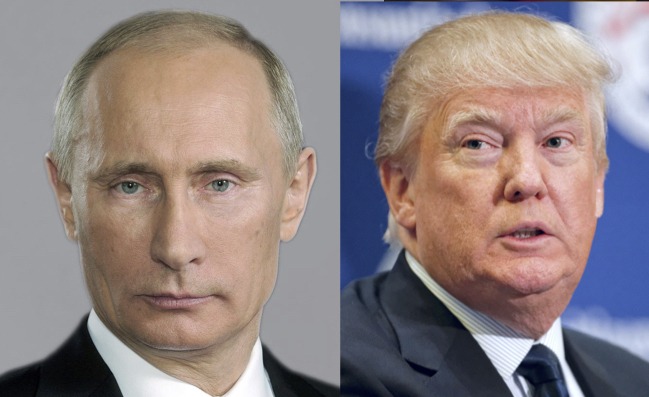Fact check: can Donald Trump use a “pocket veto” to kill the Russian sanctions bill?

The House and Senate have each passed a bill in near-unanimous fashion which takes away Donald Trump’s ability to ever unilaterally ease U.S. sanctions on Russia. That leaves Trump with the choice of signing or vetoing the bill, but his veto would easily be overridden in Congress. This has led many on social media to ask whether Trump can try a rare “pocket veto” to successfully kill the sanctions bill. We take a look at the complex but ultimately fairly clear answer in our Fact Check below.
First, the raw facts: Based on the Constitution, Donald Trump has ten days to sign or veto the Russia sanctions bill after it’s been presented to him by Congress. By default, if he fails to take any action, the bill becomes law. But if he fails to take any action and the ten day deadline just happens to arrive while Congress is in recess, the bill does not become law. Congress would then have to reintroduce the bill after the recess, revote on it, and send it to him again. If Trump again takes no action, and if Congress is not in recess at the end of the new ten day period, the bill will then become law.
Then there are the relative circumstances and motivations as we know them: the White House has repeatedly publicly asserted that Trump will sign the bill. However, a few days into the signing period, that still hasn’t happened. Trump does not want this bill to become law, because Russian President Vladimir Putin doesn’t want it. But this bill will become law eventually, because Congress is nearly unanimous in wanting it to happen; the most Trump can do is stall for time before the inevitable.
There is scattered unconfirmed buzz that Trump may try to claim he still hasn’t received the bill, in order to extend the ten day window into recess, but it’s unclear whether this strategy is actually in play. In any case, as of this evening, Reuters is still pegging the official deadline as August 9th (link). Even if the House and Senate are in recess by the deadline, the Democrats can – and likely will – use a series of procedures to keep the Congress technically in session during recess. Based on past precedent, the Republican majority would not be able to stop this from happening, even if it wanted to.
Presidential use of the “pocket veto” has been rare, and when it has been tried in the past, it’s generally ended up being disputed in the court system. Those rulings have sent mixed signals as to just how far its power can go, so it’s unclear how the courts would rule if Trump tries it here. But if the Democrats keep Congress technically in session during the recess, as expected, then he can’t even attempt it. So as a factual matter, the answer is no, Trump probably can’t kill the bill with a pocket veto under current circumstances. As a practical matter, no matter how Trump decides to approach it, the sanctions bill will become law before much longer.
